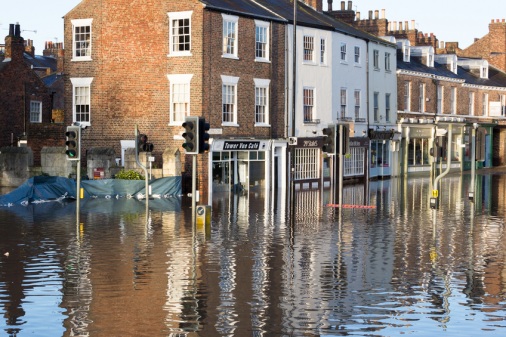UK summer storm projections and why flood risk remains high

Authored by FloodFlash
Perhaps unsurprisingly to readers, this year’s spring was far wetter than average for most of the UK. According to the Met Office, the UK saw nearly a third more rain than average over the months of March, April and June. With a record-equalling 11 storms so far in the 2023/24 season, is number 12 on the cards?
What’s the forecast for the summer?
The usual summer weather speculation has begun, and while long-range forecasting is almost impossible to get right, above-average sea temperatures could give us an insight into what’s in store.
High sea surface temperatures are typically associated with more extreme weather. That’s because warmer seas contain more energy, which means more energetic storms, which are more intense and long-lasting.
These high temperatures are one of the key reasons the US hurricane season is expected to be so severe , but they also mean we could see stormier weather in the UK this summer.
Summer flooding in the past
We may like to associate summers with blue skies and beach days, but the reality is often far from that. Whether it’s from consistent rainfall or short bursts of rain, flood risk doesn’t disappear over the summer months. Hot and sunny weather can even make flooding worse, with surface water flooding more likely after periods of drought, due to dry and hard soil absorbing less water.
One of most memorable periods of summer flooding is 2007. The year holds the record for the wettest May-July period since records began over 250 years ago. Flooding from heavy showers and thunderstorms across the summer months resulted in nearly £4bn of damage, and sadly led to 13 deaths. For UK businesses, they were the worst floods since records began, affecting over 30,000 businesses across the country.
More recently, London was impacted by flash floods in July 2021. On both the 12th and 17th July, more rain fell in just 90 minutes than the average monthly rainfall. Just a week later, further bursts of rain affected London and the south of England. While short-lived, the events led to around £100m in insured losses, with several tube stations and two hospitals forced to close.
So, if you have a client without flood cover, or with a gap in their existing cover, it’s not too late to ensure their financial resilience in the event of a summer flood. Get in touch at brokers@floodflash.com and our team will be happy to help.





